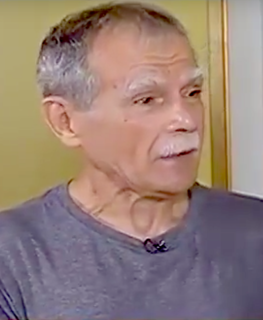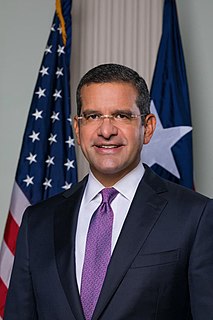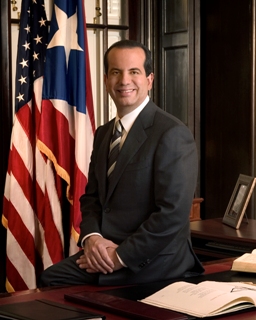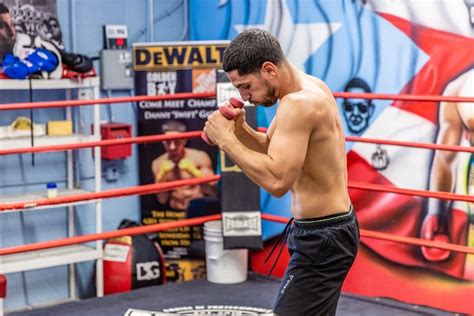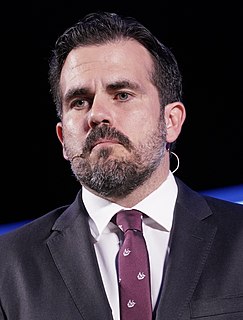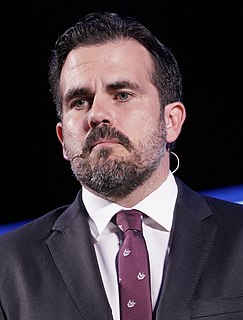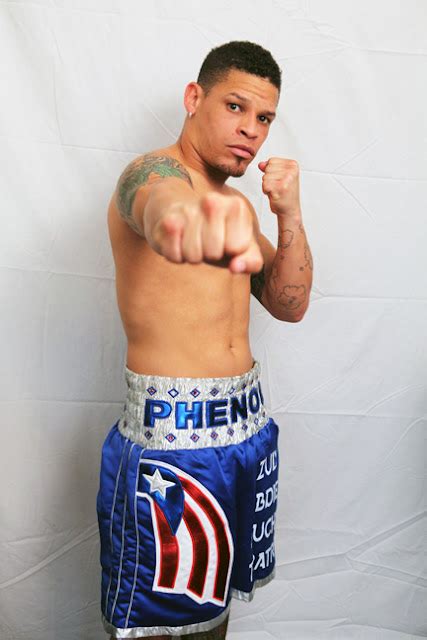A Quote by Marco Rubio
Actually, I am asking for this: for something to be done. I think that if it had been one of the 50 states, something would have already been done. Unfortunately, you know, Puerto Rico is a territory. Very often they forget about Puerto Rico.
Related Quotes
I believe that the overwhelming majority of Puerto Rico wants to be Puerto Ricans. I have been in five different states in the United States, and I have found young Puerto Ricans in the states who really love Puerto Rico, who really want to do something for Puerto Rico. And for me, Puerto Rico has to be the promised land of all Puerto Ricans, whether we are in the United States or wherever we are at. But this has to be the promised land. Annexation will never be the answer.
Puerto Ricans are U.S. citizens, but by their own choice, Puerto Rico is not a state. The relationship has worked well for Puerto Rico - which has strengthened its culture, language and economy - and for the United States, which has helped create in Puerto Rico a showcase of democracy and prosperity for all of Latin America.
The truth of the matter is that we are being very aggressive, so that we can lay the foundations for investors to come to Puerto Rico, for jobs to be created, and for opportunities to ensue. And our objective, again, is for Puerto Rico, for the people of Puerto Rico who want to stay here, for them to have the opportunity to stay here.
They [ the government of Puerto Rico] are asking to be given the right to declare bankruptcy, which I think should be an option, as a last resort, if there is no other resource. But there also need to be measures, changes within the government of Puerto Rico, in the ways that the island's funds are administered, not just to deal with this budget issue, but also to have, to attract the economic growth that is necessary for Puerto Rico to begin to grow economically. They are losing population, and they are losing economically.
Four years ago, I was fighting for the world championship title in Puerto Rico. The spectators bad-mouthed me; they called me a faggot. They told my opponent to pluck my feathers. In Puerto Rico, when you talk disparagingly about a gay man, you call him a duck. That's when I realized that something had to change.

